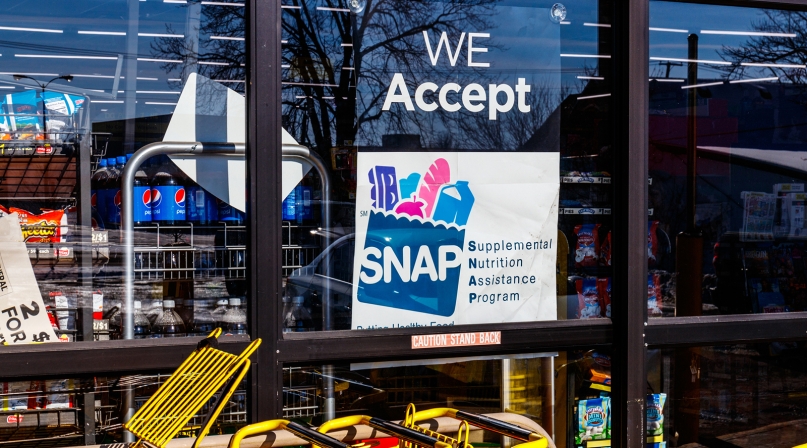NACo signs letter supporting The Emergency SNAP Flexibilities Extension Act (H.R. 7794)
Author
Upcoming Events
Related News

Key Takeaways
On August 7, NACo joined the National Association of County Human Service Administrators (NACHSA) on a letter supporting The Emergency SNAP Flexibilities Extension Act (H.R. 7794). The bill, introduced by Representative Martha Fudge (D-Ohio), would extend existing emergency Supplemental Nutrition Assistance Program (SNAP) flexibilities as the coronavirus pandemic continues. It also would ensure that county governments, which administer the SNAP program in 10 states representing 31 percent of total participants, can effectively and safely serve our residents for the duration of the public health emergency without compromising program integrity.
The pandemic has increased food insecurity well beyond rates seen during the Great Recession. Unfortunately, since the March 18, 2020 enactment of the Families First Coronavirus Response Act (P.L. 116127), the coronavirus has not abated. Currently, states and counties lack certainty around whether the U.S. Department of Agriculture (USDA) will continue to grant the necessary waivers to administer SNAP effectively during the continuing pandemic. Counties are concerned that without long-term extensions, we will experience increased program administration burdens and diminished service levels necessary to respond to the continued surge in SNAP applications while simultaneously working to re-certify benefits for SNAP participants.
The Emergency SNAP Flexibilities Extension Act would address this problem by allowing states to extend SNAP certification periods and adjust periodic reporting and interview requirements through June 30, 2021 without having USDA approval. It would also enable states to use simplified reporting in lieu of the regular recertification requirements for some, or all, of their recertifications through December 31, 2021 to address the potential surge of new cases and renewals.
Counties urge Congress to enact the provisions in this legislation to ensure our human services agencies have administrative certainty and the flexibility to safely provide critical benefits to vulnerable residents.

Attachments
Related News

USDA and HHS release new dietary guidelines
On January 7, U.S. Department of Agriculture Secretary Brooke Rollins and U.S. Department of Health and Human Services Secretary Robert F. Kennedy, Jr. unveiled the new Dietary Guidelines for Americans, 2025–2030.

County Countdown – Dec. 15, 2025
Every other week, NACo's County Countdown reviews top federal policy advocacy items with an eye towards counties and the intergovernmental partnership.
